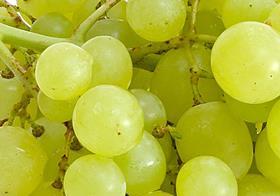
Results from a study recently published in the Journal of Nutrition Research have suggested that a grape-enriched diet may help counter the effect of stress.
In the study, researchers observed a protective role of grapes on stress-induced anxiety-like behaviours, and learning and memory deficits in an animal model of posttraumatic stress, attributed to both gene activation and enhanced antioxidant activity resulting from grape intake.
This study, conducted at the University of Houston in the US, investigated the protective role of grapes against stress, and the mechanisms by which grapes achieved this.
For the animals on grape-enriched diets, freeze-dried, whole grape powder was added to the drinking water for 3 weeks, followed by either the stress or control exposure, and then behaviour tests.
The results showed that feeding the animals a grape-enriched diet prior to stress exposure successfully countered the detrimental effects of that stress on brain function and behaviour. Specifically, grape intake prevented the memory impairment and anxiety-like behaviours that were observed in the rats with stress but no grapes in their diet.
The researchers propose that the protective benefits of grape consumption start with enhanced antioxidant activity that reduces oxidative stress levels: systemic markers of oxidative stress were reduced in the grape consuming group. Once the oxidative stress is minimised, activation of key genes that help promote the survival of brain nerve cells is triggered.
“Grapes appear to influence several processes that support brain health,” said Samina Salim, the lead investigator. “The potential interplay between grapes’ antioxidant activity and their impact on cell communication is very intriguing to us and we intend to study it further.”



